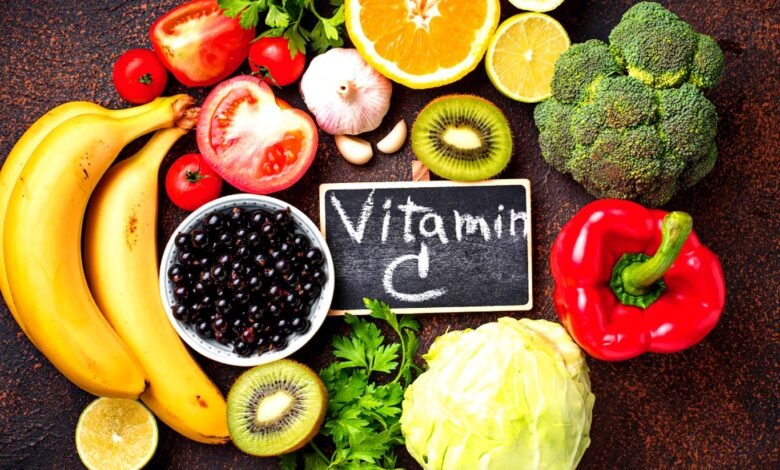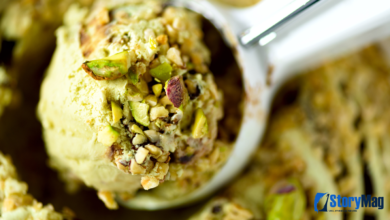Top 5 Fruits Rich in Vitamin C

Are you looking to boost your immune system, enhance skin health, and promote overall well-being? Look no further than vitamin C, a powerful antioxidant that plays a crucial role in various bodily functions. While supplements are available, nature provides an abundance of vitamin C in the form of delicious fruits. In this article, we’ll explore the top 5 fruits rich in vitamin C and how they can contribute to your health.
EXPLORE THE CONTENTS
Understanding Vitamin C
Vitamin C, scientifically known as ascorbic acid, is a water-soluble vitamin that our body cannot produce naturally. It’s a critical player in several bodily functions, making it essential to obtain it through our diet. Beyond its role as an antioxidant, Vitamin C is a key player in collagen synthesis—a protein that provides structure to skin, bones, and connective tissues. This dual functionality underscores its significance in maintaining not just a robust immune system but also healthy skin, blood vessels, and more.
Benefits of Vitamin C
Strengthening the Immune System
The immune system is our body’s frontline defense against illnesses, and Vitamin C acts as a formidable ally in strengthening its capabilities. Regular intake of Vitamin C has been linked to reduced cold duration and severity, making it a go-to nutrient for those looking to fortify their immune response.
Read More: Top 5 Drinks for Healthy Immune System
Antioxidant Properties and Skin Health
Free radicals, the culprits behind oxidative stress, can wreak havoc on our cells, contributing to aging and various diseases. Vitamin C’s potent antioxidant properties neutralize these free radicals, providing a shield for our cells. This, in turn, reflects on the health of our skin, promoting a radiant and youthful complexion.
Contribution to Collagen Production
Collagen is the scaffolding of our body, ensuring structural integrity in our skin, bones, and tendons. Vitamin C’s role in collagen production makes it indispensable for tissue repair and growth. The result is not just healthy-looking skin but also enhanced flexibility in joints and improved overall mobility.
How much vitamin C do we need?
Understanding the recommended daily intake of vitamin C is vital to ensuring we meet our body’s requirements. The guidelines vary based on factors such as age, gender, and life stage. For adults, the general recommendation hovers around 90 milligrams per day for men and 75 milligrams per day for women. Failure to meet these requirements can lead to vitamin C deficiency, which is associated with symptoms like fatigue, muscle weakness, and joint and muscle aches.
Top 5 Fruits Rich in Vitamin C
Now, let’s zoom in on the stars of our show—the top 5 fruits that stand out in their vitamin C content.
1. Guava
Guava emerges as a vitamin C powerhouse, boasting an impressive 228 milligrams per cup. Beyond its nutrient density, guava offers dietary fiber, promoting digestive health. Whether consumed fresh, juiced or incorporated into various dishes, guava is a versatile and flavorful addition to any diet.
2. Kiwi
With its vibrant green hue and unique taste, kiwi secures its place as a vitamin C-rich delight. Packing approximately 71 milligrams per medium-sized fruit, kiwi also provides a healthy dose of potassium and fiber. From simple slices to creative recipes, kiwi offers a tasty and nutritious option.
3. Oranges
Oranges, the classic citrus marvels, provide around 70 milligrams of vitamin C in a medium-sized serving. The versatility of oranges extends from whole consumption to juicing and salad additions, making them a staple for those aiming to meet their vitamin C needs deliciously.
4. Strawberries
These red gems are not just visually appealing but also pack a nutritional punch with approximately 89 milligrams of vitamin C per cup. Whether added to breakfast cereals, yogurt, or enjoyed as a standalone snack, strawberries contribute to a refreshing and nutrient-rich diet.
5. Pineapple
Closing our top 5 is a tropical delight—pineapple. With around 79 milligrams of vitamin C per cup, pineapple brings a burst of flavor to the table. From fruity salads to savory dishes, the versatility of pineapple adds a tropical twist to your vitamin C intake.
How to Maximize Vitamin C Absorption
Including vitamin C-rich fruits in your diet is a fantastic start, but optimizing absorption is equally crucial. Consuming these fruits with sources of iron-rich foods, such as spinach or lean meats, can enhance the absorption of Vitamin C. This strategic combination ensures that your body maximizes the benefits of this essential vitamin.
Myths and Facts About Vitamin C
Myth: Vitamin C Prevents Colds
Contrary to popular belief, while vitamin C may help reduce the duration of a cold, it doesn’t necessarily prevent it altogether. It serves as a supportive element for the immune system rather than a magical shield against all cold viruses.
Fact: Vitamin C and Immune Function
While not a cure-all, vitamin C does play a vital role in supporting the immune system. Its ability to bolster the immune response makes it a valuable asset in maintaining overall health.
Vitamin C Supplements: Pros and Cons
While obtaining nutrients from whole foods is ideal, vitamin C supplements can be a helpful addition for those struggling to meet their daily requirements. However, it’s crucial to exercise caution and consult with a healthcare professional before incorporating supplements into your routine. A balanced diet remains the cornerstone of optimal health.
Recipes for Vitamin C-Rich Smoothies
For those seeking a delightful and nutritious way to consume Vitamin C, here are two mouth-watering smoothie recipes:
Guava Paradise Smoothie
Ingredients:
- 1 cup guava chunks
- 1/2 cup Greek yogurt
- One banana
- 1/2 cup coconut water
- Ice cubes
Instructions:
- Blend all ingredients until smooth.
- Pour into a glass and enjoy this tropical delight!
Berry Burst Smoothie
Ingredients:
- 1 cup mixed berries (strawberries, blueberries, raspberries)
- One kiwi, peeled and sliced
- 1/2 cup orange juice
- 1/2 cup plain yogurt
- Honey to taste
Instructions:
- Blend the berries, kiwi, orange juice, and yogurt until creamy.
- Add honey to taste.
- Pour into a glass and savor the burst of flavors.
Conclusion
Incorporating vitamin C-rich fruits into your diet is not just a health-conscious choice; it’s a flavorful journey toward enhanced well-being. From the tangy sweetness of oranges to the exotic allure of guava, these fruits offer a diverse range of options to suit every palate. As you explore these nutrient-rich additions to your meals, remember that a balanced diet, rich in a variety of nutrients, is the key to unlocking your body’s full potential.
FAQs
- Can I get too much vitamin C?
- While it’s rare, excessive intake of vitamin C can lead to digestive issues. Stick to the recommended daily doses.
- Are supplements a good replacement for vitamin C-rich foods?
- Supplements can be helpful, but whole foods offer a broader range of nutrients. Aim for a balanced diet.
- Can I cook vitamin C-rich fruits?
- Cooking can reduce vitamin C content, so enjoy these fruits raw or minimally processed for maximum benefits.
- How do I store vitamin C-rich fruits?
- Store fruits in a cool, dark place or in the refrigerator to preserve their nutrient content.
- Are there any side effects of vitamin C?
- Excessive vitamin C intake can cause diarrhea or stomach cramps, so moderation is key.








One Comment